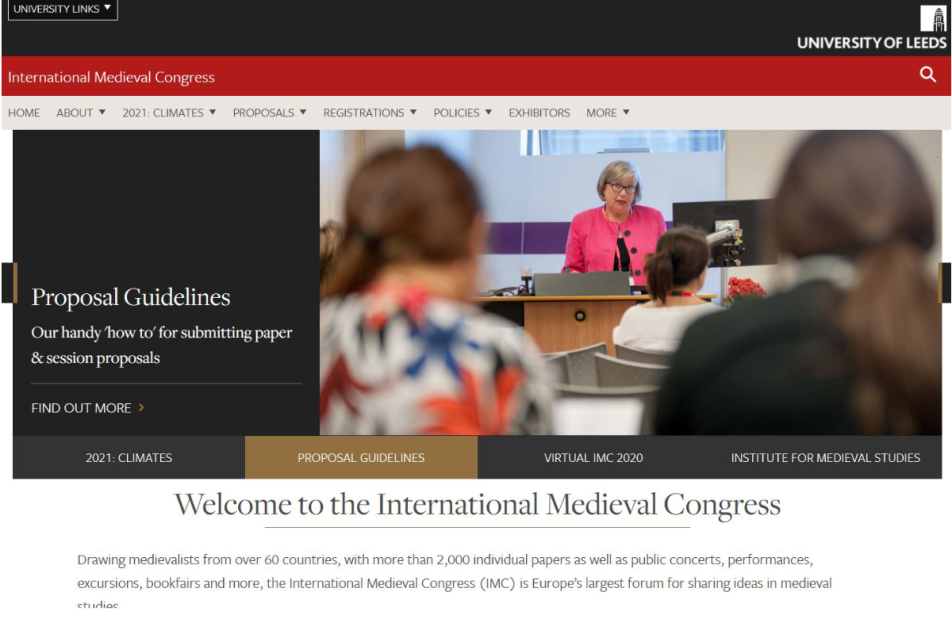7. - 10. Juli 2014 Leeds, UK
Vom 7. bis 10. Juli 2014 fand in Leeds der alljährliche International Medieval Congress statt, diesmal zum Thema "Empire". Die MGH, ihre Kooperationspartner, Mitglieder der Zentraldirektion sowie aktuelle und ehemalige Mitarbeiterinnen und Mitarbeiter waren wie folgt vertreten:
1) Three Different Views of Empire in Forthcoming MGH Editions, Organisation Karoline Dominika Döring, Moderation Karl Borchardt, Vorträge (1) Roland Zingg, Zürich, Gubernacula regni suscepit: The Vocabulary of Power in Early Medieval Annals from Lake Constance; (2) Christian Lohmer, München, Different Roles of Empire(s) in the Universal Chronicle of Frutolf of Michelsberg, 1103: Historical Functions, "Contemporary" Observations, Philosophical and Theological Implications; (3) Andrea Rzihacek-Bedö, Wien, To Be King of an Empire: The Notion of "Empire" in the Charters and Letters of the Hohenstaufen King Philip, 1198-1208
2) Law and Empire: Editing the Carolingian Capitularies, I, Organisation Karl Ubl, Moderation Gerhard Schmitz, Vorträge: (1) Philippe Depreux / Sarah Gross-Luttermann, Hamburg / Köln, Looking for the Coherence and Meaning of a Carolingian Heterogeneous Notebook: A New Examination of Paris, Bibliothèque Nationale de France, MS lat. 2718; (2) Stefan Esders, Berlin, A Law and an Oath: The Constitutio Romana of 824; (3) Steffen Patzold, Tübingen, Capitula or Capitulare? Editing the So-Called Capitulare missorum of 829
3) Law and Empire: Editing the Carolingian Capitularies, II, Organisation Karl Ubl, Moderation Simon MacLean, Vorträge: (1) Jennifer R. Davis, Washington/D.C., Manuscript Evidence of the Use of Capitularies; (2) Matthias M. Tischler, Barcelona, Changing Perceptions of a Carolingian Constitution: The Legal and Historiographical Contexts of the Divisio regnorum in the Early Ninth Century; (3) Karl Ubl, Köln, Editing the Capitula legibus addenda, 818-819, of Louis the Pious: Text and Transmission
4) The Rise and Fall of Empires in the Eastern Mediterranean during the Period of the Later Crusades, c.1300-1600, Organisation Karoline Dominika Döring, Moderation Roland Zingg, Vorträge: (1) Michael Carr, London, Enemy in Reality, Ally in Fiction: Western Depictions of Umur Pasha, Emir of Aydin, during the Rise of the Ottoman Empire; (2) Karoline Dominika Döring, München, Of Traitors and Martyrs: Frater Simon's Letter on the Fall of Constantinople in 1453; (3) Karl Borchardt, München, Hospitaller Rhodes and the Rise of the Portuguese Empire in India
5) Canon Law, I: Pseudo-Isidore and its Dependents, Organisation Eric Knibbs, Moderation Kathleen Cushing, Vorträge: (1) Eric Knibbs, Williamstown/MA, Isidore the Merchant and Ebo of Reims; (2) Gerhard Schmitz, Tübingen, Pseudo-Isidore in Benedict's Capitularies; (3) Clara Harder, Köln, Pseudo-Isidore and the Emperor
6) Karolus litteratus, IV: Karolus orans, Organisation Marco Mostert, Moderation Anna Adamska, Vorträge: (1) Mayke de Jong, Utrecht, Charlemagne: Praying Privately in Public; (2) Eva Schlotheuber, Düsseldorf, Charles IV: Publicly and Privately Praying as Political Expression; Cora B. Dietl, Gießen, Charles V: Reading and Praying Privately. Dazu Karolus litteratus, V: A Round Table Discussion, Organisation Anna Adamska, Moderation Marco Mostert, u.a. mit Eva Schlotheuber, Düsseldorf
7) Walter Pohl, Wien, ein Vortrag: Shadows of Empire in a Eurasian Perspective, in der Sektion: Visions of Community, I: Shadows of Empire - Distant Mirrors, The Case of South Arabia, und drei Moderationen, (1) Text and Identities, II: The Historiography of Barbarian Identities; (2) Paul the Deacon, II: Between Empires and Identities; (3) Visions of Community, V: The Meanings of Ethnicity in Early Medieval Europe and South Arabia - A Comparative Perspective
Insgesamt war die deutsche und deutschsprachige Beteiligung in Leeds diesmal besonders groß. Zum einen mag das dem Thema "Empire" geschuldet sein. Zum anderen fällt jedoch schon seit einigen Jahren auf, daß Leeds als Bühne für die internationale Sichtbarkeit von Forschung aus Mitteleuropa ständig an Bedeutung gewinnt.
gez. Karl Borchardt


